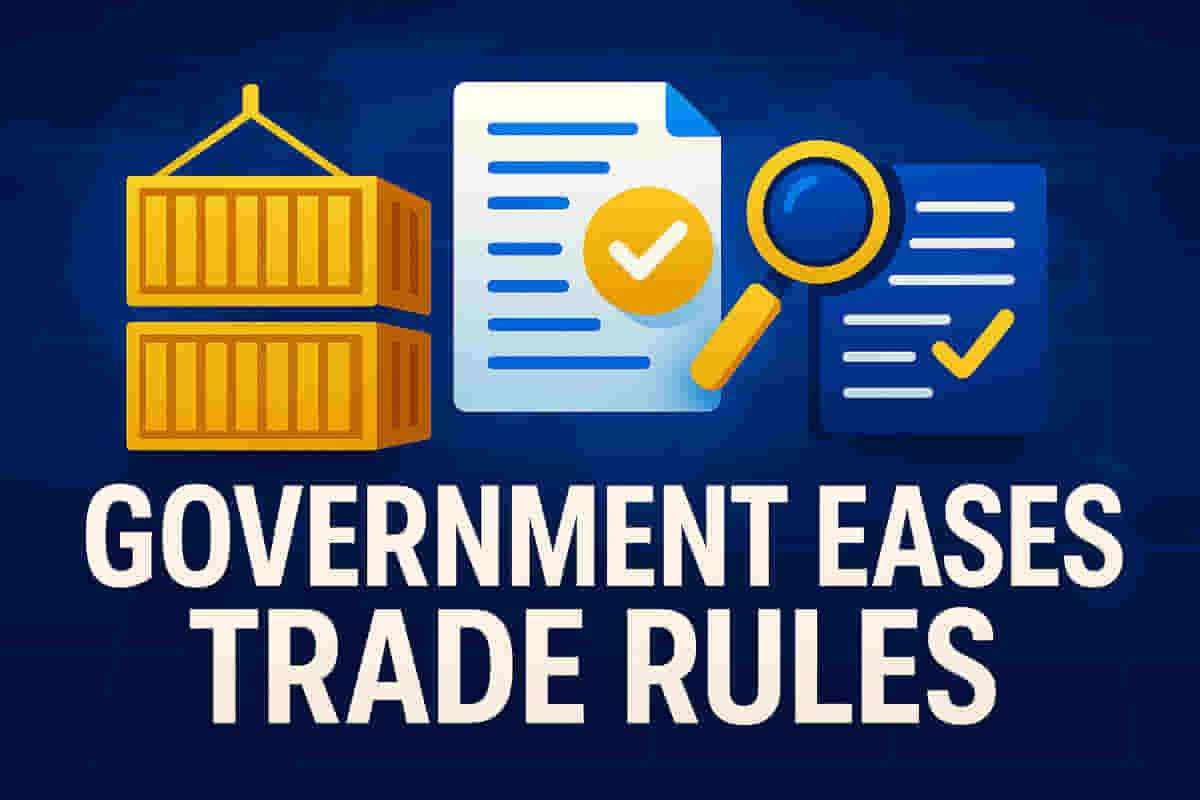CBIC Introduces Reforms for Post-Clearance Customs Declaration Revisions
Economy
|
31st October 2025, 9:04 PM

▶
Short Description :
Detailed Coverage :
The Central Board of Indirect Taxes and Customs (CBIC) has rolled out the Customs (Voluntary Revision of Entries Post Clearance) Regulations, 2025, a significant trade facilitation reform set to take effect on November 1. This new mechanism allows authorized entities, such as importers, exporters, or licensed customs brokers, to voluntarily revise their customs declarations made in bills of entry or shipping bills, even after the goods have been cleared by customs.
Applications for revision must be filed at the customs port where the duty of customs was originally paid, and can be submitted using a digital signature for either standard revisions or those involving refunds. The revision process may lead to a re-assessment by officials if discrepancies are found. Cases will be selected based on risk assessment, and applicants might need to provide additional documents within ten working days, especially for refund claims.
Impact: This reform signifies a shift towards a trust-based customs compliance regime. It empowers businesses to correct genuine errors without the immediate fear of penal proceedings, thereby strengthening transparency and potentially reducing trade disputes. This is expected to boost confidence in India's customs ecosystem and improve the ease of doing business. Rating: 8/10
Difficult Terms: Trade facilitation reforms: Changes made by the government to make it easier, faster, and cheaper for businesses to trade goods across borders. Voluntary post-clearance revision mechanism: A system where businesses can voluntarily correct mistakes in their customs declarations after their goods have already been cleared, without waiting for the customs department to find the error. Data integrity: The accuracy, consistency, and reliability of data. In this context, ensuring customs declaration data is correct. Transparency: The quality of being open and clear. In trade, it means the processes and information are easily understandable and accessible, reducing hidden practices. Cross-border trade: Buying and selling of goods and services between different countries. Customs (Voluntary Revision of Entries Post Clearance) Regulations, 2025: The official name of the new rules introduced by the CBIC allowing post-clearance corrections. Customs declarations: Formal statements or documents submitted to customs authorities detailing goods being imported or exported. Bills of entry: Documents filed by importers with customs authorities to declare goods being brought into a country. Shipping bills: Documents filed by exporters with customs authorities to declare goods being sent out of a country. Customs brokers: Licensed individuals or firms that help importers and exporters handle customs clearance procedures and documentation. Duty of customs: The tax or tariff levied by the government on imported or exported goods. Digital signature: An electronic, encrypted stamp used to verify the authenticity and integrity of digital documents. Re-assessment: The process where customs authorities re-evaluate the value, classification, or duty amount of imported/exported goods. Discrepancies: Differences or inconsistencies found between declared information and actual facts or regulations. Risk assessment: A process used by customs to identify high-risk shipments or declarations that require closer scrutiny, based on various factors. Penal proceedings: Legal actions or penalties (like fines or prosecution) taken against businesses for non-compliance with laws or regulations. Customs ecosystem: The entire network of stakeholders, processes, and regulations involved in customs clearance and trade facilitation.